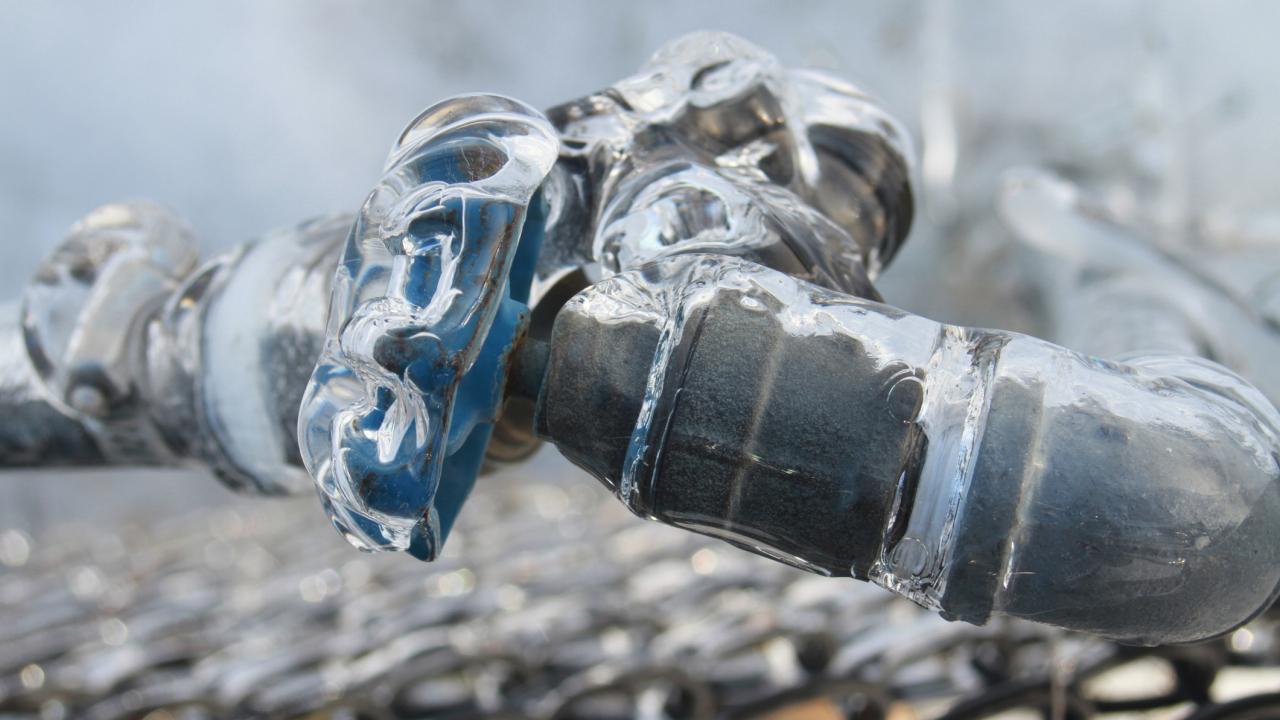How to Safeguard Your Plumbing from Freezing: Critical Advice
How to Safeguard Your Plumbing from Freezing: Critical Advice
Blog Article
They are making a few great points regarding How To Avoid Freezing Pipes as a whole in this content below.

Cold weather can ruin your pipes, especially by freezing pipelines. Right here's just how to avoid it from taking place and what to do if it does.
Introduction
As temperature levels drop, the danger of icy pipelines increases, possibly bring about costly repair work and water damages. Recognizing how to prevent frozen pipes is essential for house owners in chilly environments.
Recognizing Icy Pipelines
What triggers pipelines to ice up?
Pipes ice up when revealed to temperature levels listed below 32 ° F (0 ° C) for expanded durations. As water inside the pipes freezes, it expands, taxing the pipeline walls and potentially causing them to break.
Threats and problems
Frozen pipes can cause water supply interruptions, building damages, and pricey repairs. Burst pipes can flood homes and trigger considerable architectural damages.
Indicators of Frozen Pipes
Recognizing frozen pipelines early can prevent them from rupturing.
Exactly how to identify frozen pipes
Look for decreased water flow from taps, uncommon smells or sounds from pipes, and visible frost on exposed pipelines.
Prevention Tips
Insulating susceptible pipelines
Cover pipes in insulation sleeves or make use of warmth tape to secure them from freezing temperatures. Focus on pipelines in unheated or outside locations of the home.
Heating strategies
Keep interior areas sufficiently heated, particularly locations with plumbing. Open cupboard doors to permit cozy air to distribute around pipelines under sinks.
Securing Outside Plumbing
Garden tubes and exterior faucets
Disconnect and drain yard pipes before winter. Mount frost-proof spigots or cover outdoor taps with protected caps.
What to Do If Your Pipelines Freeze
Immediate activities to take
If you suspect icy pipelines, keep taps open to soothe stress as the ice melts. Utilize a hairdryer or towels soaked in warm water to thaw pipelines slowly.
Long-Term Solutions
Architectural modifications
Take into consideration rerouting pipes far from outside walls or unheated areas. Include extra insulation to attics, cellars, and crawl spaces.
Updating insulation
Invest in top notch insulation for pipelines, attics, and walls. Correct insulation assists preserve consistent temperatures and lowers the threat of icy pipelines.
Final thought
Avoiding frozen pipelines needs positive procedures and quick feedbacks. By understanding the reasons, indicators, and preventive measures, homeowners can shield their plumbing throughout cold weather.
Helpful Tips to Prevent Frozen Pipes this Winter
UNDERSTANDING THE BASICS: WHY PIPES FREEZE AND WHY IT’S A PROBLEM
Water freezing inside pipes is common during the winter months, but understanding why pipes freeze, and the potential problems it can cause is crucial in preventing such incidents. This section will delve into the basics of why pipes freeze and the associated problems that may arise.
THE SCIENCE BEHIND FROZEN PIPES
When water reaches freezing temperatures, it undergoes a physical transformation and solidifies into ice. This expansion of water as it freezes is the primary reason pipes can burst. As the water inside the pipe freezes, it expands, creating immense pressure on the walls. If the pressure becomes too great, the pipe can crack or rupture, leading to leaks and water damage.
FACTORS THAT CONTRIBUTE TO PIPE FREEZING
Low Temperatures: Extremely cold weather, especially below freezing, increases the risk of pipes freezing. Uninsulated or Poorly Insulated Pipes: Pipes located in unheated areas, such as basements, crawl spaces, or attics, are more prone to freezing. Insufficient insulation or lack of insulation altogether exacerbates the problem. Exterior Wall Exposure: Pipes running along exterior walls are susceptible to freezing as they encounter colder temperatures outside. Lack of Heating or Temperature Regulation: Inadequate heating or inconsistent temperature control in your home can contribute to frozen pipes. PROBLEMS CAUSED BY FROZEN PIPES
- Pipe Bursting: As mentioned earlier, the expansion of water as it freezes can cause pipes to burst, resulting in significant water damage.
- Water Damage: When pipes burst, it can lead to flooding and water damage to your property, including walls, ceilings, flooring, and personal belongings.
- Structural Damage: Prolonged exposure to water from burst pipes can compromise the structural integrity of your home, leading to costly repairs.
- Mold and Mildew Growth: Excess moisture from water damage can create a favorable environment for mold and mildew growth, posing health risks to occupants.
- Disrupted Water Supply: Frozen pipes can also result in a complete or partial loss of water supply until the issue is resolved.
WHY CERTAIN PIPES ARE MORE PRONE TO FREEZING
- Location: Pipes located in unheated or poorly insulated areas, such as basements, crawl spaces, attics, or exterior walls, are at higher risk of freezing.
- Exterior Pipes: Outdoor pipes, such as those used for irrigation or exposed plumbing, are particularly vulnerable to freezing as they are directly exposed to the elements.
- Supply Lines: Pipes that carry water from the main water supply into your home, including the main water line, are critical to protect as freezing in these lines can affect your entire plumbing system.
- Underground Pipes: Pipes buried underground, such as those connected to sprinkler systems or outdoor faucets, can be susceptible to freezing if not properly insulated.
https://busybusy.com/blog/helpful-tips-to-prevent-frozen-pipes-this-winter/

I ran across that content on Helpful Tips to Prevent Frozen Pipes this Winter while doing research the internet. Loved our blog posting? Please quickly share it. Let somebody else check it out. We enjoy your readership.
Visit Homepage Report this page